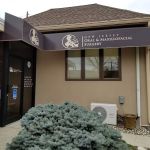How to Care for Wisdom Teeth: Tips for a Healthy Smile
- Understanding Wisdom Teeth
- Signs That You Need Wisdom Teeth Care
- Post-Surgery Care for Wisdom Teeth
- Oral Hygiene Tips for Wisdom Teeth
- When to See a Dentist About Your Wisdom Teeth
Understanding Wisdom Teeth
Wisdom teeth, also known as third molars, are the last set of teeth located at the back of your mouth. These teeth typically emerge between the ages of 17 and 25, although they can come in later or even remain impacted (stuck beneath the gumline) in some individuals. While wisdom teeth were useful to our early ancestors for chewing raw plants and meat, they are often seen as unnecessary in modern times due to changes in diet and jaw structure.
For many people, wisdom teeth can cause no issues at all. However, in other cases, they can cause discomfort, infection, or damage to adjacent teeth. Proper care for your wisdom teeth is crucial to avoid complications, and being informed about their development can help you make decisions about whether to keep or remove them.
Signs That You Need Wisdom Teeth Care
Not all wisdom teeth cause problems, but when they do, it’s important to recognize the signs and symptoms that indicate you may need care. Common signs include:
- Pain or Swelling: Pain or swelling around the back of your mouth could indicate that your wisdom teeth are emerging or are impacted. This can cause discomfort in the gums and jaw.
- Infection: If you notice redness, pus, or a bad taste in your mouth near your wisdom teeth, it could be a sign of an infection. This may happen if your wisdom teeth have erupted partially, allowing bacteria to enter.
- Difficulty Opening Your Mouth: Sometimes, wisdom teeth can lead to jaw stiffness or pain when you try to open your mouth fully. This can be a sign of swelling or infection.
- Gum Bleeding: Bleeding around the wisdom teeth may also occur, especially if they are impacted or partially erupted.
If you experience any of these symptoms, it’s essential to visit your dentist to evaluate whether your wisdom teeth require professional care or removal. Early intervention can prevent more severe complications down the road.
Post-Surgery Care for Wisdom Teeth
For many individuals, wisdom teeth are removed as a preventative measure or when they cause pain or other issues. If you undergo wisdom teeth extraction, proper aftercare is essential for a smooth recovery. Here are some important tips:
- Follow Your Dentist’s Instructions: Your dentist will provide specific instructions for post-surgery care, including how to manage pain, when to take prescribed medications, and how to avoid infection. Following these instructions is crucial for healing.
- Manage Swelling: Swelling is common after surgery. Apply an ice pack to the affected area in 15-20 minute intervals during the first 24 hours to reduce swelling and discomfort.
- Take Pain Relievers: Over-the-counter pain medications or prescribed painkillers may be recommended to help manage pain. Be sure to take them as directed and avoid aspirin, as it can increase the risk of bleeding.
- Eat Soft Foods: After surgery, stick to soft foods that require little chewing, such as mashed potatoes, yogurt, or smoothies. Avoid hot, spicy, or crunchy foods that could irritate the healing area.
- Keep the Area Clean: Gently rinse your mouth with warm salt water after 24 hours to keep the extraction site clean and prevent infection. Avoid vigorous rinsing that could dislodge the blood clot in the socket.
It’s important to avoid smoking or using a straw during the healing process, as these activities can cause dry socket, a painful condition where the blood clot dislodges, leading to an exposed bone.
Oral Hygiene Tips for Wisdom Teeth
Maintaining good oral hygiene is essential for keeping your wisdom teeth healthy, especially when they’re still in place. Proper care can help prevent infections, cavities, and gum disease. Here are some tips:
- Brush Regularly: Brush your teeth twice a day, including the back molars where your wisdom teeth are located. Use a toothbrush with soft bristles to gently clean the area around the wisdom teeth.
- Use Floss or Interdental Brushes: Regular flossing or using interdental brushes can help remove food particles and plaque from the back of the mouth, particularly around the wisdom teeth.
- Consider an Antiseptic Mouthwash: Using an antiseptic mouthwash can help reduce bacteria in the mouth and prevent gum infections. Your dentist may recommend a specific mouthwash designed for those with wisdom teeth.
- Visit Your Dentist Regularly: Routine dental checkups are important for monitoring the health of your wisdom teeth and ensuring that any issues are addressed early on.
Even if you don’t have issues with your wisdom teeth now, keeping up with these oral hygiene practices can help prevent complications in the future.
When to See a Dentist About Your Wisdom Teeth
If you’re unsure whether your wisdom teeth require care or if you experience pain or discomfort, it’s essential to visit a dentist. Regular dental checkups will allow your dentist to monitor the development of your wisdom teeth and identify any potential problems before they become more severe.
While wisdom teeth removal is common, not everyone needs their wisdom teeth taken out. Your dentist will assess factors such as the position of the teeth, your age, and the condition of your gums and jaw before recommending removal. If you’re experiencing any of the symptoms mentioned earlier, it’s best to seek professional advice as soon as possible.
For more information on how to care for wisdom teeth or to find the best products and services for your oral health, consider visiting Dentistry Toothtruth for expert guidance and recommendations.







 St. Paul Oral Surgery - Mendota Heights4.0 (214 review)
St. Paul Oral Surgery - Mendota Heights4.0 (214 review) Dental Health Professionals5.0 (776 review)
Dental Health Professionals5.0 (776 review) Family Dentistry of Lakewood4.0 (321 review)
Family Dentistry of Lakewood4.0 (321 review) Cerritos Dental Surgery5.0 (137 review)
Cerritos Dental Surgery5.0 (137 review) Barbieri Dennis DDS0.0 (0 review)
Barbieri Dennis DDS0.0 (0 review) Sparkle Pediatric Dentistry of Mechanicsville4.0 (355 review)
Sparkle Pediatric Dentistry of Mechanicsville4.0 (355 review) The Importance of Oral Health Education During Pregnancy for a Healthy Pregnancy
The Importance of Oral Health Education During Pregnancy for a Healthy Pregnancy Best Tips for Brushing Your Teeth Properly for Healthy Gums: Essential Techniques for Oral Health
Best Tips for Brushing Your Teeth Properly for Healthy Gums: Essential Techniques for Oral Health Why Skipping Dental Checkups Can Lead to Bigger Oral Health Problems
Why Skipping Dental Checkups Can Lead to Bigger Oral Health Problems Advantages of Porcelain Dental Restorations
Advantages of Porcelain Dental Restorations How Can Diabetes Cause Tooth and Gum Problems? Preventing and Managing Oral Health Issues
How Can Diabetes Cause Tooth and Gum Problems? Preventing and Managing Oral Health Issues Healthy Habits for Promoting Good Oral Health and Hygiene: Tips for a Healthy Smile
Healthy Habits for Promoting Good Oral Health and Hygiene: Tips for a Healthy Smile